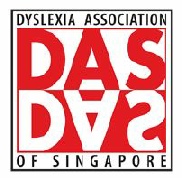

© Dyslexia-Research.com - Dr Neil Alexander-Passe - Contact at: neilpasse@aol.com
Dyslexia-Research.Com - The home of humanistic dyslexia research
Asia Pacific Journal of Developmental Differences
Vol. 2, No. 2, July 2015, pp 202- 233
DOI: 10.3850/S2345734115000290
Abstract
This paper reports on a qualitative/quantitative adult dyslexic study of 22 dyslexics
who presently or have in the past suffered from a depressive disorder, and 7 control
dyslexic adults. It compares depressive to non‐depressive dyslexics, with gender and
academic success variables. Interpretive Phenomenology Analysis was used to
investigate dyslexia and stigma.
Many perceived dyslexia as positive and gave them unique skills, but made them
feel different. This difference was perceived to come from having to work harder
than their non‐dyslexic peers to achieve in life, as dyslexia affected many aspects of
their daily life. Interestingly most would not seek a cure if it was offered ‐ suggesting
they perceived their dyslexia to be integral to whom they were, and losing their
dyslexia would be as great as losing a limb.
Evidence suggested that dyslexics experience discrimination due to their disability,
whether they perceive it as a disability or not. They felt there was a lack of public
domain information on dyslexia and its effects, as many of their peers perceived it
being negative. Recent legislation in the US and the UK aims to protect dyslexics in
the workplace, however to gain protection they need to disclose their hidden
disability to the world, making them vulnerable.
Many dyslexics have survived the last twenty, thirty or more years in the workplace
and school without their difficulties being highlighted, one participant noted that
they had felt successful in hiding for so long, with many feeling unhappy about
disclosing their difficulties as they may fear this would firstly go on their record and
secondly it might have a negative effect on promotion and career prospects.
Many felt dyslexia was a disability when they were children, as school was
seen as an inflexible environment with no escape from reading and writing,
along with unfair comparison with age appropriate peers ’ only disabled by my
dyslexia when you put me into a classroom’(Natasha). It was felt as an adult there
was more flexibility to choose professions that play to a dyslexic’ strength and use
supportive technology (e.g. computers and spell-checkers). However, a minority
withdrew from a society when they felt ill -equipped to function effectively within it.
Stigma due to dyslexia was highlighted as many camouflaged their difficulties at
work, attributing their difficulties to quirkiness (positive) rather than being disabled
(negative). Implications for the Asia Pacific area are discussed.


| About the Author |
| Academic CV |
| Teaching CV |
| Research for the book |
| Reviews for the book |
| The Successful Dyslexic Book |
| How can parents support their child with dyslexia? |
| Dyslexia, self-harm and attempted suicide |
| The Lifelong social and emotional effects of Dyslexia |
| Dyslexia and Depression |
| Dyslexia: Dating, Marriage & Parenthood |
| Dyslexia and Creativity |
| Dyslexia and Mental Health-differing perspectives |
| Dyslexia & Mental Health |
| Surving School as a Teenage Dyslexic |